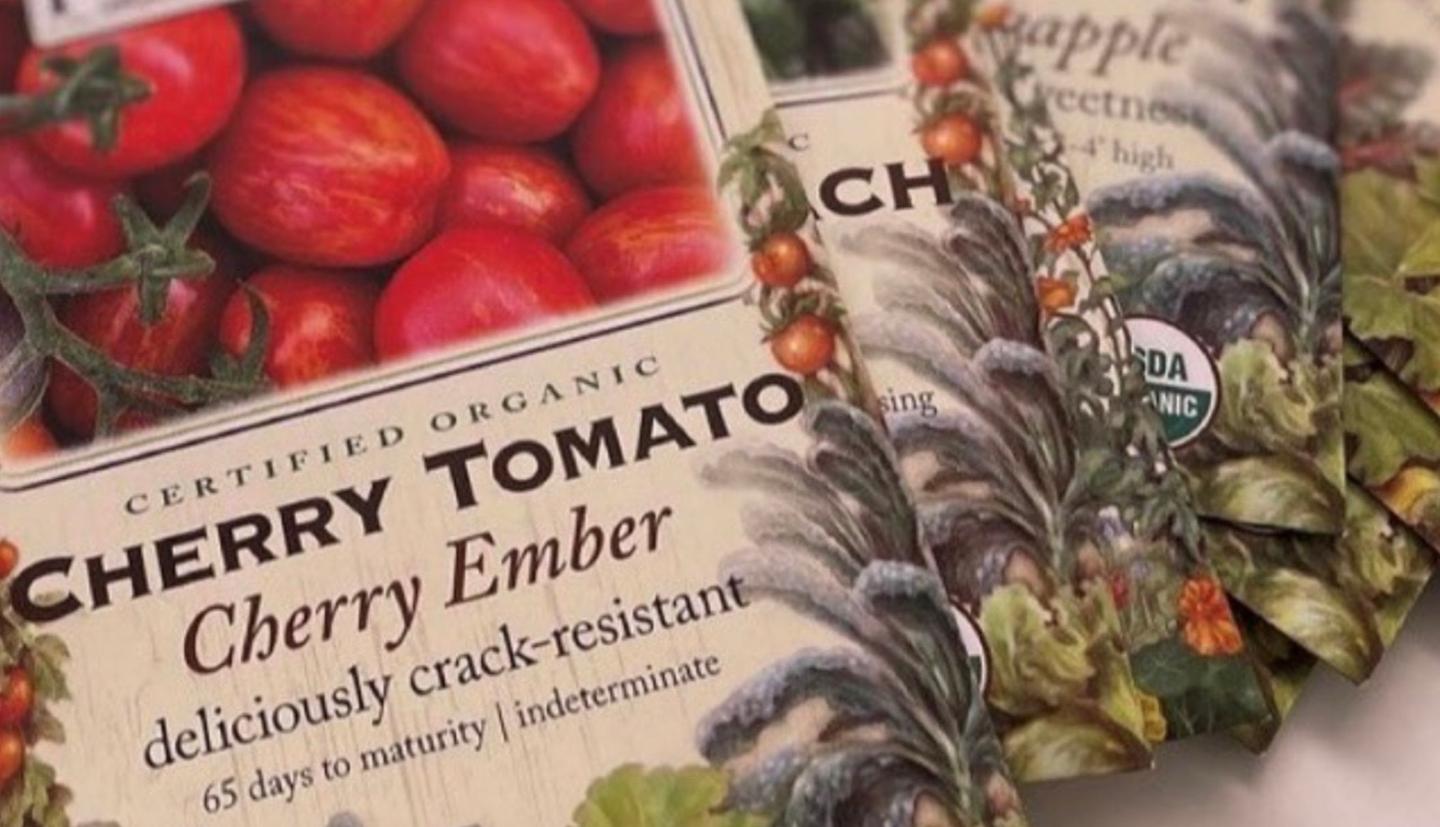A cross between heirloom tomato varieties, Cherry Ember was developed by Phillip Griffiths, associate professor of horticulture in the School of Integrative Plant Science, part of the College of Agriculture and Life Sciences. The new tomato is now on sale through Fruition Seeds, an organic seed company based in Naples, New York.
“One of the problems with cherry tomatoes is that they tend to have thin skins, and so half of them crack on the plant, and the half that you pick crack after a few days,” Griffiths said. “Cherry Ember is a little firmer, with more of the post-harvest characteristics of a grape tomato.”
Its thicker skin and meatier flesh helps keep the fruit from cracking both in the field and after being harvested — even during high rainfall seasons, which pose problems for thinner skins.
“The increased shelf-stability is a very important attribute of this variety,” Griffiths said, “especially when combined with high yield, desirable aesthetics and a smaller, single-bite size.”
When Petra Page-Mann saw Cherry Ember at one of Griffiths' field trials in 2019, it stood out like a “luminescent gem.” As the co-owner of Fruition Seeds, she has seen increased grower interest in unique color and flavor combinations. With its metallic gold stripes, rich taste and ease to grow, Page-Mann was eager to add the new variety to their sales portfolio, but it still needed a name.
Last fall, she launched a naming contest on Fruition Seeds’ Instagram account with Griffiths’ support. They sorted through more than a thousand suggestions before holding the final runoff vote, where Cherry Ember emerged as a clear winner.






